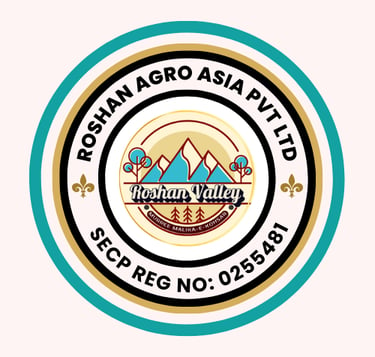Disclaimer: The official launch of Roshan Agro Asia is contingent upon approval from relevant government authorities. This website is provided for informational purposes only and does not constitute marketing or an offer to sell.
Tips for Growing Agarwood Plants for Oud Oil Production
3/21/20243 min read


Tips for Growing Agarwood Plants for Oud Oil Production
Agarwood, also known as oud, is a highly valuable and sought-after resinous wood that is used in the production of oud oil. The demand for oud oil has been steadily increasing, making agarwood cultivation a profitable venture. If you are interested in growing agarwood plants for oud oil production, here are 20 tips to help you get started:
1. Choose the Right Species
Select a suitable agarwood species that is known for producing high-quality oud oil. Some popular species include Aquilaria malaccensis, Aquilaria crassna, and Aquilaria sinensis.
2. Provide Optimal Growing Conditions
Agarwood plants thrive in tropical and subtropical climates. Ensure that they receive ample sunlight, moderate humidity, and well-drained soil.
3. Start with Healthy Seedlings
Obtain healthy seedlings from a reputable nursery to ensure the best chances of success. Look for seedlings that are disease-free and have well-developed roots.
4. Maintain Proper Spacing
Plant the seedlings with adequate spacing to allow for proper growth and airflow. This will help prevent diseases and promote healthy development.
5. Regular Irrigation
Agarwood plants require regular watering, especially during the initial growth phase. However, be cautious not to overwater, as it can lead to root rot.
6. Implement Proper Drainage
Ensure that the planting area has proper drainage to prevent waterlogging, which can be detrimental to the health of agarwood plants.
7. Apply Organic Fertilizers
Use organic fertilizers to provide essential nutrients to the plants. This will promote healthy growth and enhance the production of agarwood.
8. Prune Regularly
Prune the plants regularly to remove dead branches and promote better air circulation. This will help prevent the spread of diseases and improve overall plant health.
9. Protect from Pests and Diseases
Monitor the plants for pests and diseases regularly. Take preventive measures such as using organic pesticides and maintaining proper hygiene to protect the plants.
10. Implement Shade Management
During the initial growth stage, provide shade to protect the young plants from direct sunlight. Gradually expose them to more sunlight as they mature.
11. Practice Grafting
Grafting is a common technique used to propagate agarwood plants. Learn the proper grafting techniques or seek professional assistance for successful grafting.
12. Be Patient
Agarwood trees take time to mature and produce resin. It can take several years before the trees start producing oud oil. Be patient and maintain consistent care.
13. Monitor Soil pH
Regularly check the soil pH and maintain it within the optimal range for agarwood cultivation. The ideal pH range is typically between 6.5 and 7.5.
14. Harvest at the Right Time
Wait for the agarwood trees to reach the appropriate age before harvesting. The resin content is highest when the trees are around 10 to 15 years old.
15. Proper Extraction of Oud Oil
Learn the proper techniques for extracting oud oil from agarwood. Improper extraction methods can reduce the quality and value of the oil.
16. Ensure Quality Control
Implement strict quality control measures to ensure that the oud oil produced from your agarwood plants meets the highest standards. This will help maintain a good reputation in the market.
17. Market Research
Conduct thorough market research to understand the demand for oud oil and identify potential buyers. This will help you establish profitable sales channels.
18. Networking
Build a strong network within the agarwood industry to gain knowledge, share experiences, and explore collaboration opportunities with other growers and experts.
19. Continuous Learning
Stay updated with the latest research, advancements, and best practices in agarwood cultivation. Continuous learning will help you improve your techniques and maximize yields.
20. Seek Professional Guidance
If you are new to agarwood cultivation, consider seeking guidance from experienced growers or agricultural experts. Their expertise can be invaluable in ensuring your success.
By following these tips, you can increase your chances of successfully growing agarwood plants for oud oil production. Remember that agarwood cultivation requires patience, dedication, and continuous learning. With proper care and management, you can establish a thriving agarwood plantation and contribute to the lucrative oud oil industry.








